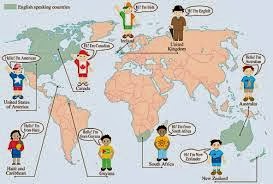EUROPEAN DAY OF LANGUAGES
What is the European Day of Languages?
There are over 6000 languages spoken in the world. And behind each and every one of them lies a rich and diverse culture. That’s what the European Day of Languages (EDL) aims to celebrate - by showing people across Europe how important languages are, and what fun can be had learning them.
26 September is the all important day and 2011 marks the Day's 10th anniversary following the decision of the Council of Europe to declare a European Day of Languages to be celebrated on 26 September each year.
If you want to learn a bit more about the different languages spoken in Europe, click on the link below. Choose one of the flags at the top and listen how some simple English expressions are written and pronounced in that particular language.
The Council of Europe proposes some tips on how to learn languages successfully.
"LEARNING NEW LANGUAGES TAKES TIME AND EFFORT.
BUT EVERYBODY CAN DO IT, AND IT’S WELL WORTH IT."
PRACTICAL TIPS
- Don’t try to learn everything at once. Set clear and realistic targets and go at your own pace.
- Be open to new ways of learning– new methods and new technology can help you.
- Use every opportunity to communicate in the language.
- Don’t be afraid of making mistakes. You can work gradually on reducing them. What matters is getting your meaning across.
- Revise what you have learnt and review your progress regularly.
WRITING
- Try to find opportunities to communicate in writing – e- mails, postcards, letters, etc.
- Read through what you have written: when you write there’s more time to check and correct mistakes...
READING AND LISTENING
- Reading and listening a lot is very important. The more you listen, the better you’ll speak. Reading will help you to write better.
- Read and listen to texts where the language is used naturally (newspaper, TV, radio).
- Remember you don’t have to understand every word to get the gist.
SPEAKING
- Practise speaking as much as you can (talk to your fellow students, to foreigners you meet, even to yourself!)
- Most people never achieve a perfect accent in another language. That does not matter as long as people understand.
VOCABULARY
- Learning new words is easier if you group them according to their meaning.
"Teachers teach, but only learners can learn. In the end, you are responsible for your own progress".So the best method is whatever works best for you.
If you want more information, click on the link below:
http://edl.ecml.at/Portals/33/pdf/learn-languages-EN.pdf



Comentarios